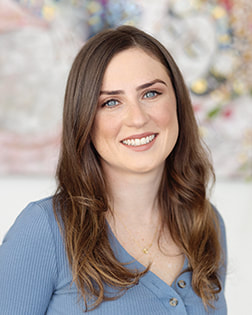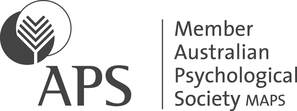Background
Having initially pursued a Business degree, Carolina discovered a passion for Clinical Psychology and completed a Graduate Diploma at the University of Melbourne. She went on to obtain a first class Honours degree at the Australian National University, followed by a combined Masters of Clinical Psychology and PhD back at the University of Melbourne. Carolina has a longstanding interest in parenting and attachment. Her PhD research focused on the effects of parenting styles on brain development and risk for psychopathology in young people during puberty.
Carolina has worked in both the public and private mental health sectors. Early in her career she worked with youth experiencing significant psychological challenges such as psychosis, externalising behaviours and depression / anxiety. She then went on to support adults at a community mental health clinic, treating a broad range of complex psychological difficulties, including major depression, anxiety, OCD and psychosis.
Concurrently to these roles Carolina has worked in private practice, where she developed a keen interest in perinatal mental health through supporting expectant and new parents navigating the many psychosocial changes and challenges that can accompany this life stage. As a result of this clinical interest, Carolina pursued relevant professional development in the perinatal field.
Doctoral Research
Carolina’s PhD research examined the interplay between parenting styles and the timing of puberty in relation to brain development and psychological difficulties (i.e. depression and anxiety symptoms, and externalising behaviours). In a comprehensive study that followed families through the childhood to adolescence transition, she found that punitive parenting styles and a lack of parental monitoring were implicated in altered patterns of activation and development in brain regions important to emotion processing in children, as well as a potentially increased risk for anxiety/depressive symptoms.
Current Practice
In her perinatal private practice, Carolina focuses on assisting people during the perinatal period with issues such as anxiety, depression, stress, relationship difficulties and loss/grief. As a parent herself, and with a research background in parenting, Carolina helps parents to understand their triggers, to define their parenting values, and to parent in ways that promote secure attachment. She is also passionate about helping individuals navigate the challenges that can emerge in their fertility and pregnancy journeys.
Approach to Therapy
Carolina is warm and authentic in her approach to therapy. She understands the importance of creating a compassionate, reflective and non-judgemental space for clients to explore challenges in their lives. She is dedicated to creating a shared understanding of the nature and origins of presenting difficulties as a foundation for therapy. Carolina works collaboratively with clients to facilitate changes aligned with their personal values, and to create meaning and acceptance of their individual experiences.
Carolina’s practice draws primarily from Acceptance and Commitment Therapy (ACT), Schema Therapy and Cognitive Behavioural Therapy (CBT) approaches. She also draws from attachment theory in her work with expectant and new parents aiming to improve relationships.
Professional Affiliations
Registered with the Psychology Board of Australia (PBA)
Member of the Australian Psychological Society (APS)
Member of the APS College of Clinical Psychologists
Registered Circle of Security parent educator
Member of the APS Perinatal and Infant Psychology Interest Group (PIPIG)
Registered with The Perinatal Loss Centre
Publications
Barbosa, C., Simmons, J. G., Vijayakumar, N., Dudgeon, P., Patton, G., Mundy, L. K., Allen, N. B. & Whittle, S. (2018). Interaction between parenting styles and adrenarcheal timing associated with affective brain function and mental health. Journal of the American Academy of Child and Adolescent Psychiatry.



